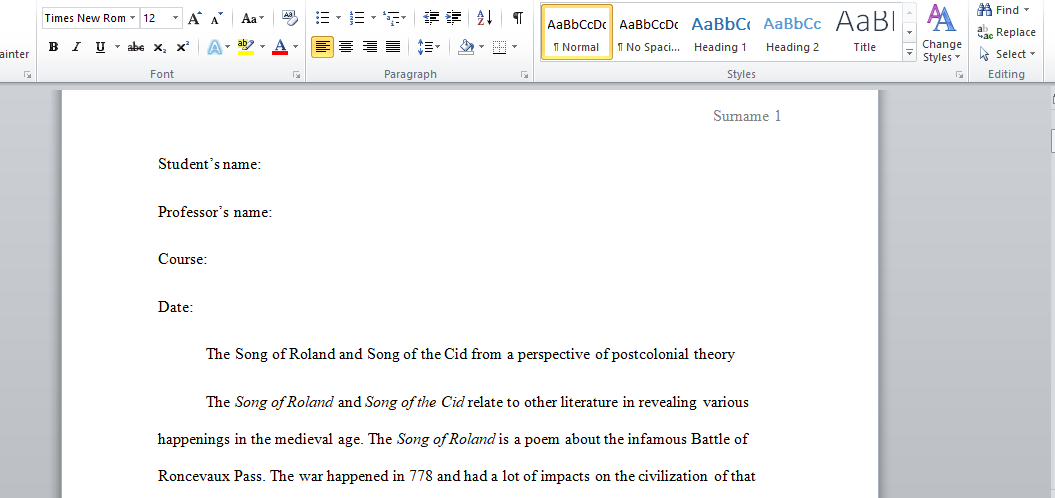Analyze the song of Roland and song of the Cid from a perspective of postcolonial theory.
This short paper asks you to analyze the Song of Roland and Song of the Cid from a perspective of postcolonial theory. Choose TWO critical readings that we’ve done so far to use as proof-texts for your reading of the epic. You may choose from the following:
- Said, Edward W. Orientalism. 1st Vintage Books ed. Vintage, 1979. Print.
- Lampert-Weissig, Lisa. “Chapter 1: The Future of the Past.” Medieval Literature and Postcolonial Studies. Edinburgh University Press, 2010. Print.
- Kinoshita, S. “‘Pagans Are Wrong and Christians Are Right’: Alterity, Gender, and Nation in the Chanson De Roland.” Journal of Medieval and Early Modern Studies 31.1 (2001): 79–112. Print.
- Carpenter, Dwayne E. “Social Perception and Literary Portrayal: Jews and Muslims in Medieval Spanish Literature.” Convivencia: Jews, Muslims, and Christians in Medieval Spain. Ed. Vivian B. Mann, Thomas F. Glick, and Jerrilynn D. Dodds. New York: George Braziller, 1992. 61–82.
Possible list of themes identified by post-colonial critics (not conclusive):
- Depictions of Muslims, Jews, and Christians in the poems
- War and religion
- Masculinity, femininity, and gender
- Race and racialization in the Song of Roland
Or, you may choose your own based on your own interests.
Instructions:
- Choose a theme or a connective link between the Song of Roland and your critical text(s), define it for your reader, explain how it functions in your texts, and what a reader, either medieval or modern, might interpret from this. Everything in a literary text symbolizes something else – both connotatively and denotatively. Consider multiple, or even contradictory, meanings to your chosen symbol. Cite frequently, to demonstrate and prove your points, using page numbers or line numbers from poetry.
Example for prose: The emptiness of one seat at the Round Table, according to Merlin, symbolized “‘the place where Judas had sat at the Last Supper’” (Prose Merlin, 328).
Answer preview:

Words:1,325
